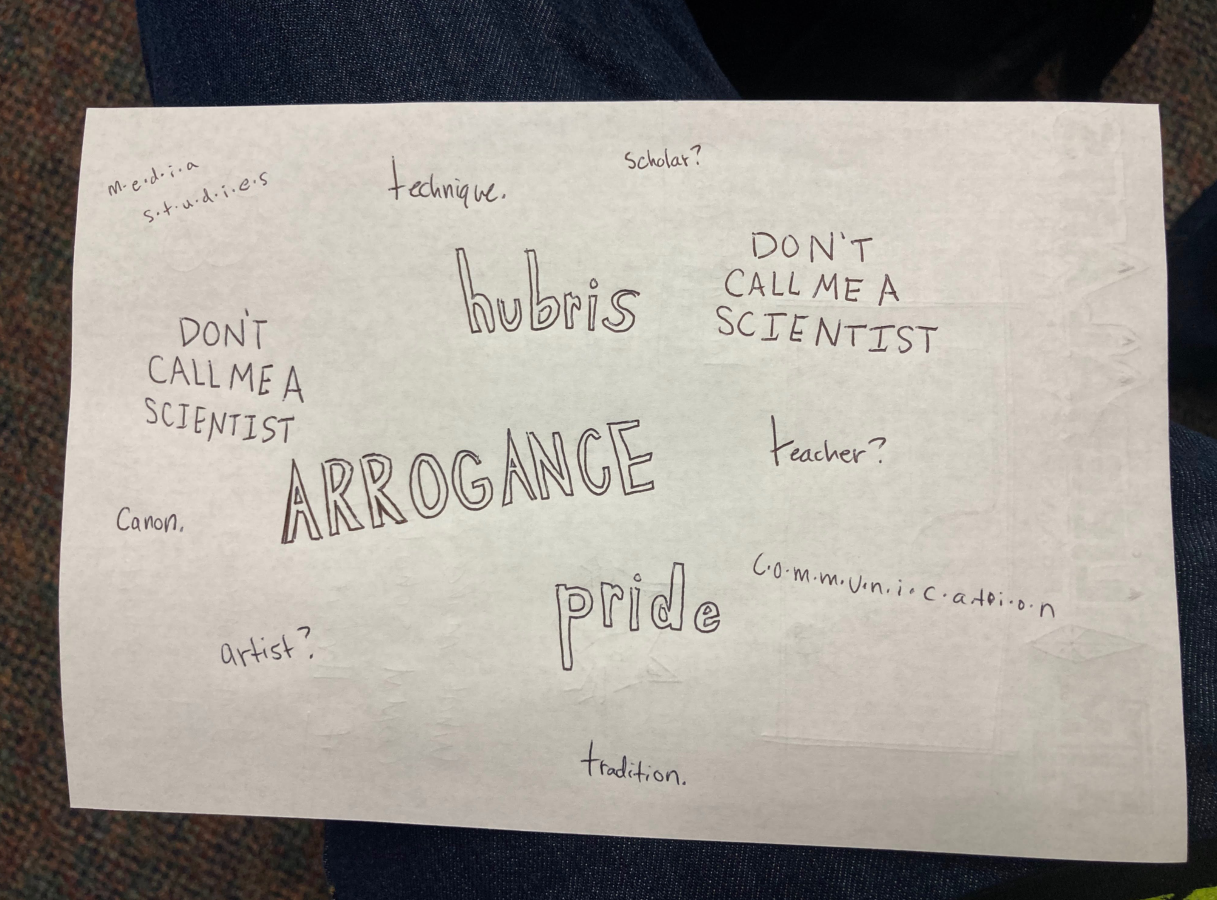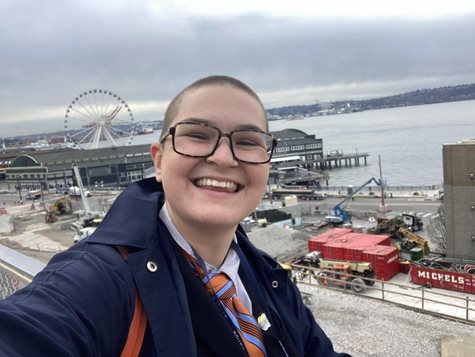April 2022

I Don't Like Academic Writing
Academic writing is often pretentious.
There, I said it. As I was reading an article for one of my classes a few weeks ago, I had to read a sentence three times (including once out loud) to understand its meaning, which turned out to actually be quite simple. Because I am a callous old scholar now, I quickly quipped to a friend of mine, “I bet this was written by a young scholar. Listen to this; no one writes like this unless they are insecure and want to sound smart.” Spoiler alert; I was right. I looked up the author and quickly found that they were under the age of thirty when they wrote the piece-- and fresh out of graduate school. Bingo. Why write to confuse? Because, as my professor says, if you confuse them, how can they argue with you?
It is a vulnerable thing, to write clearly.
- - - - - - - - - - - - - - - - - - - - - - - - - - - - - - - - - - - - - - - - - - - - - - - - - - - - - - - - - - - - - - - - - - - - - - - - - - - - - - - - -
Recently during class, a peer of mine asked about the value that experienced scholars do (or do not) attribute to a unique form of scholarship known as autoethnography. Autoethnography is a type of scholarship that attempts to make sense of the broader cultural environment through self-analysis. Oftentimes, it is written with a lot of personal pronouns (I, we, etc.) and gives the author space to develop and utilize their own voice. For this reason, I find it fun to read and write. And, for this reason, some people do not consider it to be a “real” form of scholarship.
Before I get too comfortable on my high horse, I must admit that I was at first also skeptical of autoethnography. A faculty member once sent me one of her articles and my response to her was, “THIS IS ACADEMIC WRITING?!” Akin to my musings about narrative writing, I was shocked to learn that writing that I find enjoyable can be considered valuable academic work.
However, just because I now find value and meaning in it does not mean that everyone does. Which prompted a surprisingly passionate and heartfelt discussion to take place in my class where my classmates all listened earnestly to each other as we described, articulated, and defended our own worth; as scholars, writers, journalists, rhetoricians, social scientists, artists… people. There were a lot of snaps, claps, hand holdings, and hugs as we encouraged each other to write as ourselves--and, if that writing is not being valued as we feel it should, to move along. It was cathartic. It was necessary.
And yet, we also realized that as lovely as this all was, it is not always possible. There is always a catch, and I both pride myself and despise myself for being the one to point it out. So, in the middle of the inspirational moment, I pushed back. “We can say this in Delaney Catalina Couri I Don’t Like Academic Writing this room. In these two and a half hours, but what about out there? I agree that we are worthy, but the idea that we can entirely choose and shape our own fate? What about classes, professors, jobs that say otherwise?”
Not staying in a room where my voice is valued seems like an obvious answer, but what if I am stuck in those rooms? Or what if those rooms--those jobs-- are the ones that I want to be in? I don’t want to be somewhere where I am not valued, but where is the line between leaving versus staying as a way of changing these rooms to allow voices like mine?”
- - - - - - - - - - - - - - - - - - - - - - - - - - - - - - - - - - - - - - - - - - - - - - - - - - - - - - - - - - - - - - - - - - - - - - - - - - - - - - - - -
This discussion was of grave importance to me because, truthfully, when it comes to traditional academic writing, I’m terrible. I can’t write. I say “I” too much. Use commas where commas should not be. Struggle to come up with the right words and then write the wrong “right.” Case in point, I’m confusing— reread that last sentence and tell me, does that make any sense to You? I talk to the audience too much… and about You too much, dear Reader. I’m messy and all over the place.
This ugly truth came to a head recently when I was editing a paper for one of my discipline's most important conferences. It first surfaced when I realized that, when it comes to academic writing, I can’t just write, I also have to edit. What the heck?! What even is “editing?” I wouldn’t have written something if I thought it was wrong, so what right do I have to go back and tell past Delaney that I disagree with them? What happened to the death of the author, can I not rest in peace once I finish my first draft?
As I was performing the horrible task known as “editing,” I realized that whoever wrote that paper has serious issues, then I remembered that who wrote that paper was in fact me four months ago. And it did not age well or gracefully in those four months. It’s like my writing decayed before my eyes, losing the color and vibrancy I recall it having in the winter months. Maybe my writing is seasonal and only blooms in December? Maybe I’m just delusional in December?
As I continued to read, slowly, painfully, I made it to page seven. Let me tell you, Reader, about page seven. While the previous six pages are perhaps the worst prose to (dis)grace the earth, page seven is a masterpiece. Who wrote this thick description, these sweeping metaphors, the effectual text? Oh, that was also me… the only difference is that I shifted from old school academic writing, to autoethnographic writing. The writing that we discussed in class that day. The style of writing that is still being questioned in the academy. That some consider academic lite, or worse even, not academic at all.
Upon reaching this realization, I did when any logical adult would do; completely panicked, considered my once bright (but now dull future), worried intractably that my advisor has now read this and will no doubt one day soon kick me to the curb, and immediately ran to the office of my other advisor to cry about how I had also failed her and beg her to promise never read any of my writing ever.
She was on a phone call, so I ran up two flights of stairs to my other advisor to beg her to stop reading the paper, only to find that she was working elsewhere. As I joked to both of them later, why have two advisors if BOTH of them are busy when I’m in crisis? (To which a particularly snarky peer quipped back, “Maybe you need a third one.”)
After fruitlessly “editing” for ten more minutes, I ran back down to my advisor's office again where she mercifully took me in. As I sat there griping and moaning, she stopped, looked at me very seriously and said, “You don’t like academic writing.”
Disclaimer; As I discussed earlier, I don’t hate all academic writing, but it is true that my talent and disposition lies outside of a “typical” scholarly domain and more on the autoethnographic side.
I stared right back at her as the sentence hung in the air, “You don’t like academic writing.” Finally, I broke the silence and said, “I’m not going to disagree with you; go on.” And, dear Reader, she proceeded to do her job with a level of grace and patience that I may never achieve, advising me with the most simplistic and yet most impactful advice that anyone has given me. “It’s ok if it is not beautiful, it is ok if it is not perfect. Is it clear? You don’t like academic writing, so, even if you did well, you would not be able to see it. So instead of making value judgements, ask yourself, ‘Is it clear?’”
To be honest, when I write blog posts, when I write autoethnographies, when I write the way I like to, being “clear'' is not high on my list of priorities. I don’t aim to confuse, but clarity does not equal success because if I am too clear, too pointed, too straightforward, well, what is the fun in that?
In rhetoric, the inarguable argument is the gold standard, and there have been papers I have read that are so clear, so well-written, that the conclusions seem obvious and even indisputable. Considering rhetoric is firmly lodged in the ever-shifting and always-upfor-debate humanities field rather than the positivist scientific world where clarity comes from “capital T” truths, this is wildly impressive. So, to any reviewer that reads my paper, all of the pages, not just the perfect seventh page, I hope that they see my perspective. I hope that my argument is clear.
But… when You read this post… I hope it’s not. I hope you leave thoughtful, not enlightened. I hope you see my perspective, then throw it to the side to build your own as You reflect on your own experiences interacting with and creating “academic writing” -- in whatever form that takes. Because, after all, academic writing is often pretentious…but it doesn’t have to be. And it is a vulnerable thing, to write clearly… if you’re into that sort of thing
